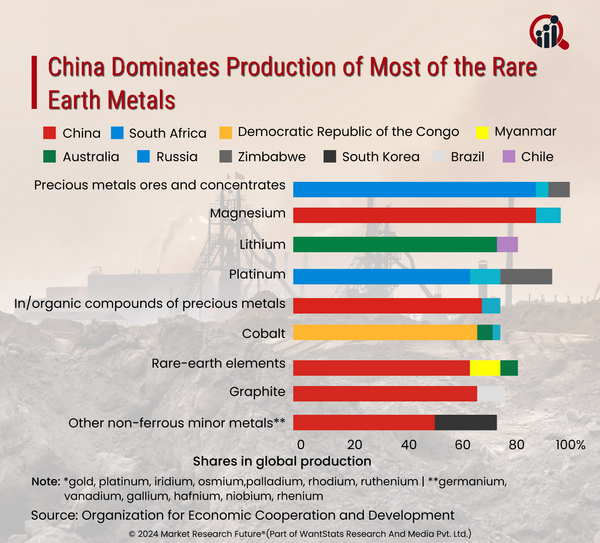Europe to Become Self Reliant with Production of Earth Metals
Enhancing energy security in the countries is vital in the era of clean energy transition. China is the HubSpot of rare earth metals. Therefore, several developed and emerging nations depend on China for these earth metals. However, Europe plans to become self-reliant with mineral production in 2024. Earlier, the country was dependent on China for earth metals.
According to the European Union's 2024 act, it plans to increase the production of minerals by 10 percent from within Europe. The nation plans to achieve this goal by the end of 2030. In order to become reliant and economically strong, Europe decides to limit its dependency on China for mineral products. Based on information from the survey, Europe plans to increase its domestic production of critical minerals in 2024. The developed nation decides to become self-reliant and free from dependency on Chinese-produced rarer earth metals. However, the nation cannot stop its dependence on China's minerals and has agreed to reduce it by 2024. There is an urgent need for the production of minerals in Europe to meet demands. As the nation plans to cut back on Chinese minerals anytime soon, Europe must boost its production market.
Surveys found Norway as the largest deposit of rare metals in Europe. There are many reasons behind Europe's decision to produce earth metals in 2024 domestically. It will boost the economy of Europe by creating job security for its citizens within the country. Europe takes these actions to maintain a stable and safe supply chain disruption emerging from recent geopolitical issues with China. Additionally, it will improve the clean energy transition, manufacturing of electric vehicles, and others. Hence, this announcement comes after Europe declared tariff imposition on Chinese electric vehicles in 2024.






